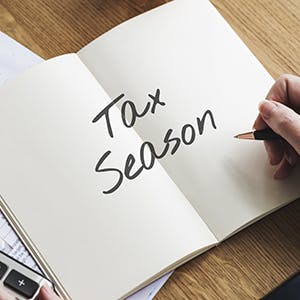SAICA advises taxpayers to carefully examine SARS auto assessments
The South African Institute of Chartered Accountants (SAICA) encourages taxpayers issued with an auto assessment from the South African Revenue Service (SARS) to carefully examine it before treating it as correct.
For the first time following the introduction of auto-assessments for individual taxpayers two years ago, according to SARS the auto assessments issued this year, constitute original assessments.
“At a practical level, this means that taxpayers receiving such assessments are no longer required to press a button to accept these assessments and may simply check the data used to populate the returns and if in agreement, log out of the eFiling system and wait for the refund, if one is due”, says Somaya Khaki, Project Director for Tax at SAICA.
While some taxpayers rely on SARS’ quality checks and deem the auto assessment correct without performing their own detailed checks, a common misconception is that taxpayers who receive the auto assessments do not have to double-check that it is correct and that the liability of an incomplete or incorrect assessment lies with SARS.
Taxpayers are still required to validate the contents of auto assessments, as confirmed in the SARS eFiling disclaimer for auto assessments. Should a taxpayer not agree with the auto assessment and its contents, the taxpayer or authorised tax practitioner must request a return and complete it with the correct and complete information and then submit this corrected return to SARS within 40 business days of receiving the auto assessment. An extension for a further 40 business days is available upon request via eFiling.
Khaki further explains that although filing a tax return seems so much easier now that SARS is ‘doing all the work’ for those receiving auto assessments, what needs to be at the forefront of every taxpayer’s mind is that ultimately, each taxpayer remains liable for and carries all the risk of the correctness and completeness of the information used to populate the estimated return and related auto assessment. “Should the taxpayer accept an auto assessment that is missing certain information, SARS is entitled to raise the issue of misrepresentation should omissions be detected. SARS also expects taxpayers to ensure that information prepopulated from data submitted by third parties, like an employer or bank, is correct and complete. The taxpayer may be held liable by SARS for failure to address any incorrect or incomplete information used to generate the auto assessment,” she says.
Furthermore, if the taxpayer knowingly omits income from the return, for example rental income, investment income, or income from a side trade, SARS can argue tax evasion with far-reaching consequences for the taxpayer.
SARS’ communication advises that taxpayers who receive and effectively accept auto assessments as correct, will not be subject to verification due to these passing SARS quality checks before being issued. If the taxpayers request and submit revised returns, these will be run through the usual risk engines and may or may not be subject to verification, depending on which result the risk engine yields. This would be the case whether the return is corrected to disclose additional income or to claim allowable deductions which are not auto assessed.
For taxpayers whose main source of income is salary income with some investment income from financial institutions – and which has been correctly and completely populated by SARS – may find that they can simply check the correctness of these assessments and then log out of the eFiling system.
Either way, validating and correcting an incomplete or incorrect auto assessment, remains the taxpayer’s responsibility. Therefore, we strongly encourage those impacted to check the auto assessments received rather than automatically accepting them as correct.
About SAICA
The South African Institute of Chartered Accountants (SAICA), South Africa’s pre-eminent accountancy body, is widely recognised as one of the world’s leading accounting institutes. The Institute provides a wide range of support services to more than 50 000 members and associates who are chartered accountants (CAs[SA]), as well as associate general accountants (AGAs[SA]) and accounting technicians (ATs[SA]), who hold positions as CEOs, MDs, board directors, business owners, chief financial officers, auditors and leaders in every sphere of commerce and industry, and who play a significant role in the nation’s highly dynamic business sector and economic development.
Chartered Accountants are highly valued for their versatile skill set and creative lateral thinking, that's why all of the top 100 Global Brands employ Chartered Accountants.
SAICA Media Contacts
Kgauhelo Dioka, ***@saica.co.za
Project Manager: Communications
SAICA Brand Division
Renette Human, ***@saica.co.za
Project Director: Communications
SAICA Brand Division
